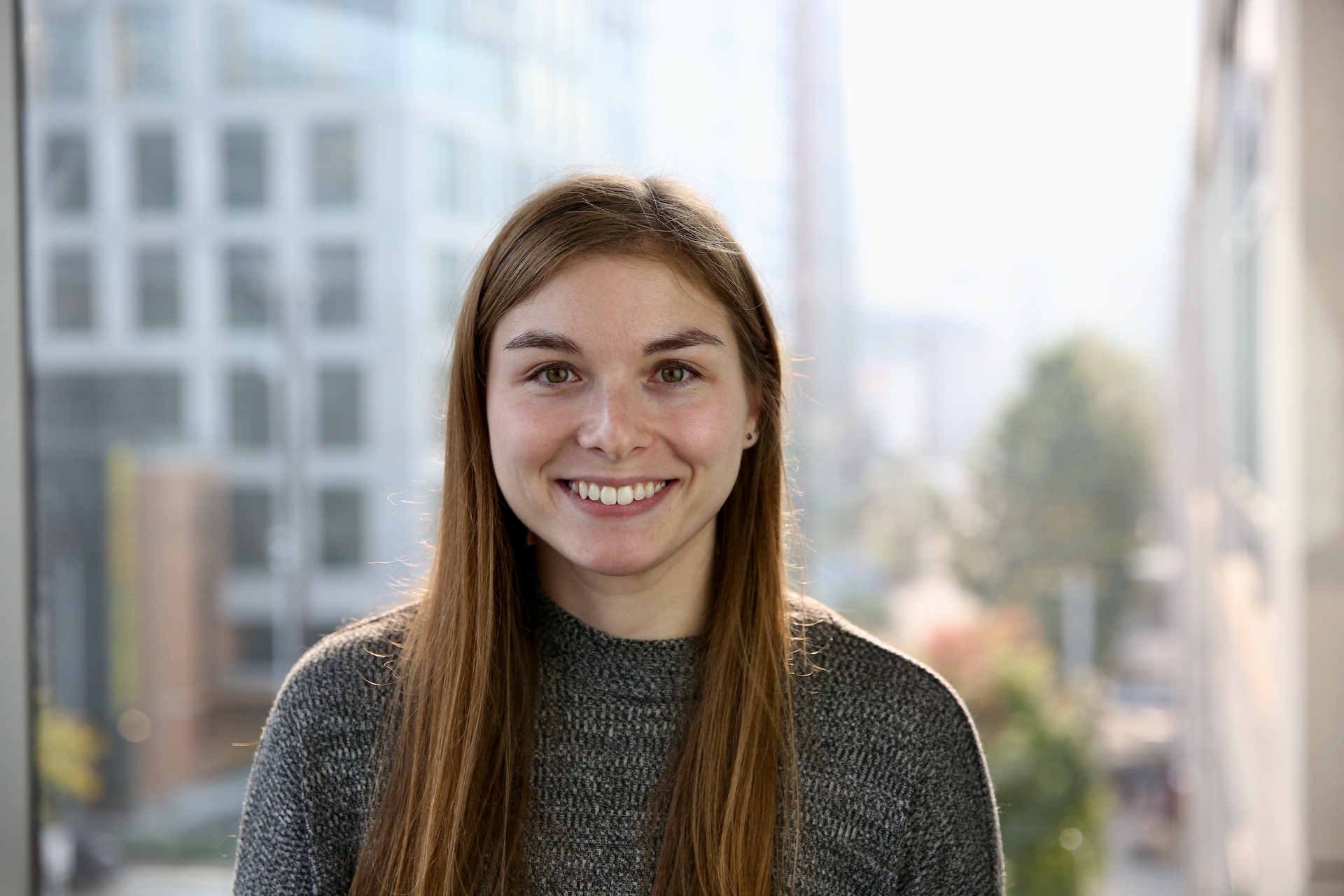AmeriCorps Member Sara Calder Joins ISB as Systems Health and STEM Coordinator
 isbscience.org/news/2022/11/28/americorps-member-sara-calder-joins-isb-as-systems-health-and-stem-coordinator/
isbscience.org/news/2022/11/28/americorps-member-sara-calder-joins-isb-as-systems-health-and-stem-coordinator/
In October, Sara Calder joined ISB as Systems Health and STEM Coordinator and ISB’s second-ever AmeriCorps member.
Sara Calder is a life-long Washington state resident, and her education journey has been focused on science, technology, engineering and math (STEM). In October, she joined ISB as Systems Health and STEM Coordinator and our second-ever AmeriCorps member.
Calder’s journey to ISB is an interesting one, and she agreed to answer our questions to unpack her past experiences, future aspirations, and much more.
Read our Q&A below and get to know Sara Calder.
ISB: How long have you been in the AmeriCorps?
Sara Calder: Not long! I started with AmeriCorps in mid-October, so it’s been just over a month.
ISB: How did you find your way to ISB? What was it that attracted you to ISB?
SC: I was first introduced to ISB several years ago through my twin sister, Rachel Calder. She was also a part of the Systems Education Experiences (SEE) team and worked as an Education Coordinator from 2019 to 2021. During her time here, she invited me to several lectures and gave a tour of her work place. Everyone I met was so kind and welcoming, and she was always excited about her work. When my sister mentioned the SEE team was looking for someone to work on the Systems Medicine curriculum, I was immediately interested. That sense of community and collaboration was a big part of why I was attracted to ISB.
ISB: What projects are you working on?
SC: As the Systems Health and STEM Coordinator, my primary project is to mentor high school students as they use their knowledge of community health and wellness to design and implement community action projects. I have worked in the healthcare system and look forward to helping students learn about its complexities and how they can bring about positive change. I will start working with my first group of students in the next couple of weeks.
I am also partnering with high school teachers from Seattle Public Schools (SPS) this spring to assist students as they complete community action projects. Their projects will be a culmination of a year’s worth of Systems Medicine curriculum that SPS is currently piloting. I am excited to provide resources and information as they impact the health of their communities!
ISB: What do you hope to accomplish in your time at ISB?
SC: My main goal is to mentor students as they take steps to complete their community action projects. I am excited to help make their ideas a reality. Ultimately, we will showcase these projects on the SEE website to inspire other students to get involved in their respective communities. Throughout my service term, I hope to fuel students’ desires to learn more about the multifaceted aspects of health and how systems thinking can be used to improve community health. I am excited to grow as a leader and mentor, and further develop skills that will transfer into my future healthcare career.
(Follow SEE on Facebook, Twitter and Instagram.)
ISB: What is your education trajectory?
SC: I started taking college classes in high school at Cascadia College through Running Start. I spent my freshman year finishing prerequisites at Cascadia before transferring to the University of Washington Seattle campus as a junior. I spent two years there and graduated in 2018 with a Bachelor’s in Molecular, Cellular and Developmental Biology. I have always had a STEM-focused trajectory. After taking time off to work as a medical scribe, I am currently working on a graduate level certificate in clinical trials at UW.
ISB: What are your career aspirations?
SC: My ultimate goal is to become a physician. Throughout my time as a scribe, I worked in a variety of inpatient and outpatient specialties. Given those experiences, I am currently interested in emergency medicine and critical care. I remain open to all specialities and am excited to continue to learn as much as possible.
ISB: What might come next after ISB and AmeriCorps?
SC: Medical school, I hope! During my service term, I will also be applying to medical school. I have lived in Washington my entire life so I will be applying broadly across the U.S. and would be excited to move to a new state for four years.
ISB: What are your hobbies? What do you do when you’re not working?
SC: Like many Washington residents, I enjoy the outdoors and being active. In warmer and drier months, I spend my spare time hiking along the Highway 2 corridor. These days most of my free time is spent studying for the Medical College Admissions Test (MCAT).
ISB: Do you have any guilty pleasure TV shows or movies?
SC: My guilty-pleasure TV show is “Forensic Files.” The first show aired in 1996, and I’m working my way through hundreds of episodes. I love the way the show describes “cutting edge” techniques, such as PCR, that we now take for granted and that are currently being used everyday. It demonstrates how far forensics have come and how these advances have changed the way we think about the world.
ISB: What special skill would people be surprised to learn about you?
SC: I don’t know if this is considered a skill, but people may be surprised to learn that I hiked The Enchantments in a day this past summer. It is an absolutely beautiful and treacherous 18-mile trail near Leavenworth, Wash. Permits are required for backpacking and are difficult to obtain, which is why we decided to make it a day hike. It was exhausting but definitely worth it!





